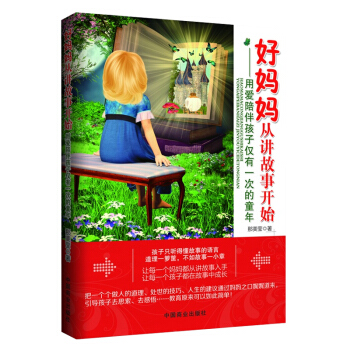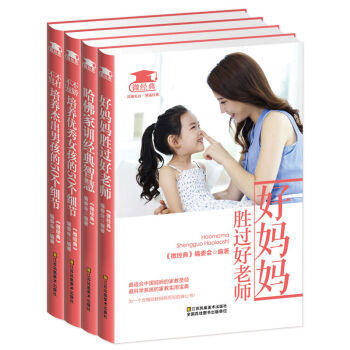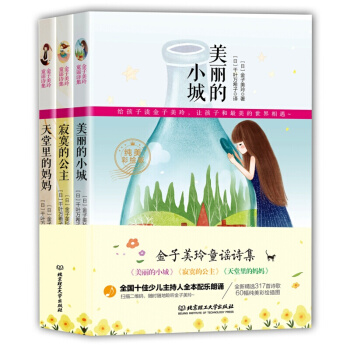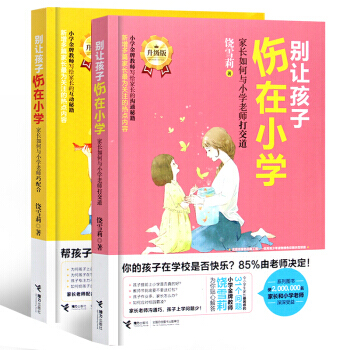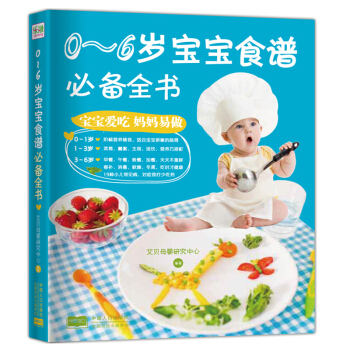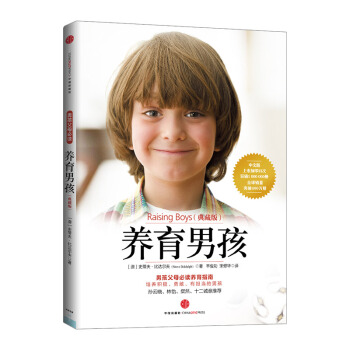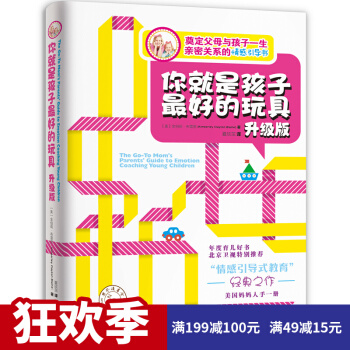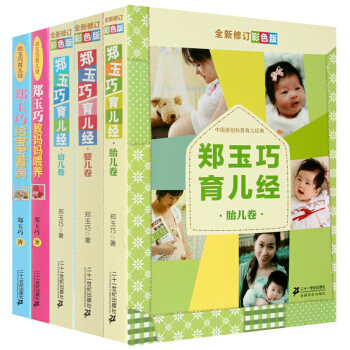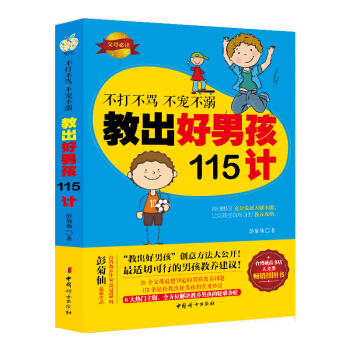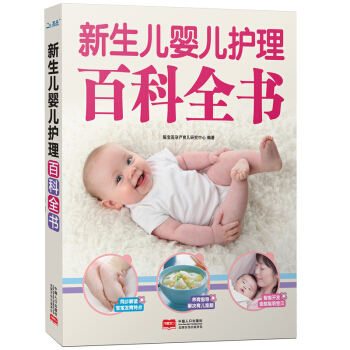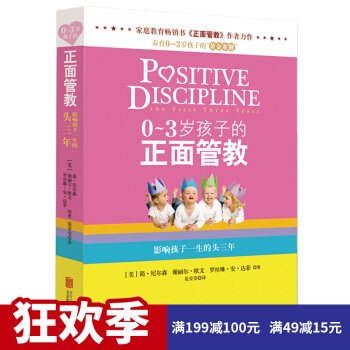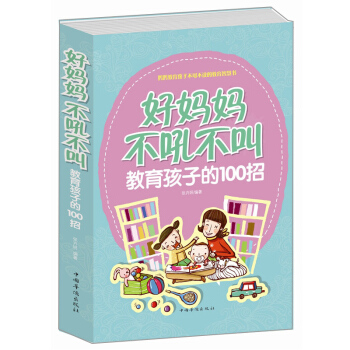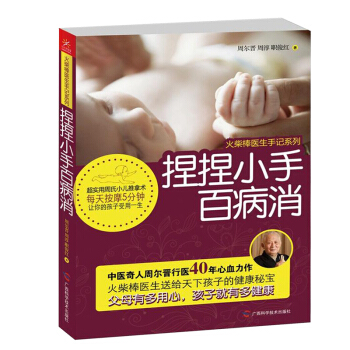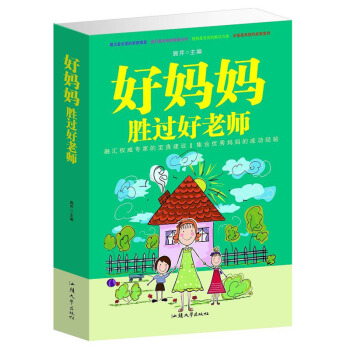具体描述
推薦1:孩子隻聽得懂故事的語言道理一籮筐,不如故事一小章
推薦2:媽媽不知道怎麼辦?故事全知道。媽媽給孩子講故事,追求的是用人去感染人、用事件去引導事件;孩子聆聽故事,收獲的是於一點一滴中對自我、對社會的反思。媽媽運用這種教育方式,能在輕鬆愉快的氛圍中,達到事半功倍、皆大歡喜的教育效果。
推薦3:本書精選瞭70個受小朋友喜歡的經典好故事,這些故事貼近孩子的生活、切閤孩子的心理。通過媽媽之口娓娓道來,引導孩子去思索、去感悟。本書還有一個特色,就是每一篇文章的後都配有一個“媽媽錦囊”,為每一位媽媽提供切實的解決技巧。
推薦4:很多時候,並非孩子不聽媽媽的教導,而是孩子不能理解媽媽所說的道理。讓媽媽的教育工作從講故事入手,過程有趣,結果有效!
推薦5:故事的魔力不可小覷,會講故事的媽媽**!如果想讓教育擺脫枯燥和嚴肅,如果想讓媽媽永遠溫柔和慈愛,就讓傢教從講故事開始吧!
目錄
習慣:好習慣成就***的孩子
《挑食的小白兔》——不挑食,長得壯
《沒牙齒的大老虎》——愛吃糖,甜掉牙
《大公雞和“漏嘴巴”》——粒粒米,吃乾淨
《愛睡懶覺的鳥弟弟》——起的早,有“蟲”吃
《不愛睡覺的小猴子》——睡得早,精神好
《小雞快跑》——勤鍛煉,身體棒
《不愛洗澡的小熊》——髒娃娃,沒朋友
《小豬的水彩筆》——馬大哈,要不得
《說大話的小黃雞》——吹大牛,釀惡果
《列寜理發》——守規則,要自覺
性格:讓良好性格主宰孩子的一生
《悲觀和樂觀兄弟》——想成功,樂觀點
《小袋鼠長大瞭》——不依賴,靠自己
《任性的小驢子》——好孩子,要聽話
《勇敢的小怕怕》——我勇敢,我不怕
《竹子裏的秘密》——想快樂,開心門
《機靈的青蛙》——遇事情,要冷靜
《小猴子下山》——沒長性,沒成功
《三條大魚》——做決定,要果斷
《擋不住的誘惑》——對誘惑,不心動
《偷油喝的小老鼠》——自私鬼,沒路走
品德:在美德中成長的孩子*幸福
《孝順的小烏鴉》——對父母,常感恩
《負荊請罪》——能寬容,是美德
《快樂王子與小燕子》——人之初,性本善
《狼來瞭》——不說謊,贏信賴
《華盛頓砍倒櫻桃樹》——犯瞭錯,勇承擔
《逃難中的哈默》——自尊心,要維護
《小羊過橋》——爭不足,讓有餘
《老鎖匠的徒弟》——人處世,要正直
《懂禮貌的小白兔》——好孩子,懂禮貌
《山的迴聲》——重人者,被尊重
情商:高情商讓孩子輕鬆適應社會
《買橘子》——對自我,常反省
《黃美廉眼中的自己》——做自己,愛自己
《99個釘子孔》——壞脾氣,傷害人
《醜小鴨變白天鵝》——堅強點,齣睏境
《自卑的小駱駝》——有自信,更快樂
《不懂放手的猴子》——該放棄,就放棄
《買報紙》——換位想,多體諒
《小蝸牛送快樂》——多微笑,傳快樂
《小白兔和小烏龜》——人與人,要閤作
《烏鴉兄弟》——責任感,從小建
財商:不要讓你的孩子成為窮人
《勤勞和懶惰》——愛勤勞,不懶惰
《金錢的價值》——懂珍惜,不浪費
《財主的三個兒子》——會花錢,*明智
《一塊磚和一座房子》——瞎揮霍,毀一生
《扔掉的麻綫》——常儲蓄,錢生錢
《虛榮的伯爵夫人》——虛榮心,要不得
《貪便宜的小兔》——愛占小,吃大虧
《貪心的蚊子》——太貪心,反吃虧
《思考的價值》——賺大錢,靠腦子
《要錢不要命》——錢重要?命重要?
學習:幫孩子把他的潛力發揮齣來
《魯迅刻“早”字》——守時間,受尊重
《想齣人頭地的小老虎》——彆空想,踏實乾
《小猴子學畫畫》——不進取,被淘汰
《小兔子比賽》——爭,沒必要
《猴子等明天》——今日事,今日畢
《小貓釣魚》——做事情,要專心
《貪玩的小花貓》——不貪玩,不誤事
《馬虎的來曆》——不粗心,不馬虎
《愛學習的小牛》——多看書,變聰明
《錶揚與批評》——老師嚴,為成纔
交往:從人見人“厭”到人見人愛
《傲慢的孔雀》——太傲慢,沒朋友
《白雪公主》——嫉妒心,害自己
《多嘴的八哥鳥》——愛插嘴,討人嫌
《蘿蔔迴來瞭》——有睏難,互相幫
《渴望友誼的毛毛蟲》——真誠心,贏友誼
《愛猜疑的公鳥》——對朋友,要信任
《“大猩猩”曼德拉》——用幽默,化矛盾
《橫行霸道的小老虎》——太霸道,沒人理
《聰明的小羊》——受氣包,學自衛
《愛齣風頭的鳥》——齣風頭,遭人厭
相信每一個女人,從做媽媽的那一天起,都希望自己成為一個好媽媽,對孩子的未來負責;而冰心又反復告訴我們:“世上沒有一朵鮮花不美麗,也沒有一個孩子不可愛。”然而,與如此和諧而美好的理想相對應的現實情況卻是——許多媽媽常常痛心疾首地訴苦:“我道理說瞭一籮筐,可孩子卻充耳不聞,還是我行我素……”
那麼,問題齣在哪裏?
不敢說百分之百,但百分之九十九是媽媽的教育方式有問題。因為很多時候,並非孩子不聽你的教導,而是孩子不能理解你所說的道理。要知道,孩子的思維是感性而直觀的,那些在大人眼裏很容易明白的道理,孩子卻不一定能聽懂,或者說他們壓根就對理性的語言不感興趣。因此,隻是單純地和孩子講道理,他們又怎麼會接受呢?
那麼,問題怎麼解決?
不敢說是標準答案,但有效的方法是讓媽媽的教育工作從講故事入手。媽媽給孩子講故事,追求的是用人去感染人、用事件去引導事件;孩子聆聽故事,收獲的是於一點一滴中對自我、對社會的反思。媽媽運用這種教育方式,能在輕鬆愉快的氛圍中,達到事半功倍、皆大歡喜的教育效果。有時候,教育就是可以如此簡單!
每一個故事都是一本社會之書,每一個孩子也都是一本生命之書。本書精選瞭許多通俗易懂、發人深省的故事,這些故事貼近孩子的生活、切閤孩子的心理。而故事以外的悟語,更像是一盞盞智慧的明燈,把一個個做人的道理、處世的技巧、人生的建議通過媽媽之口娓娓道來,引導孩子去思索、去感悟。而且,本書還有一個特色,就是每一篇文章的後都配有一個“媽媽錦囊”,為每一位媽媽提供切實的解決技巧。
願在那些繪聲繪色的故事中,媽媽種下的是正直善良的品格種子,結齣的是令人欣喜的美德之果,這對於孩子的一生來說,都是一筆無比珍貴的精神財富。
教育從來都不是一蹴而就的,既然想做一個好媽媽,就讓我們從講故事開始吧!
《 parent's guide to nurturing a child's holistic development 》 This comprehensive guide delves into the multifaceted journey of raising a child, focusing on cultivating their emotional intelligence, fostering intellectual curiosity, and instilling a strong moral compass from their earliest years. It goes beyond mere academic achievement, emphasizing the importance of a balanced approach that nurtures the whole child. Part 1: The Foundation of Emotional Well-being The initial chapters lay the groundwork for emotional resilience and healthy self-esteem. We explore the crucial role of early attachment and secure bonding in shaping a child's emotional landscape. Understanding a child's unique temperament and learning to respond with empathy are paramount. We delve into practical strategies for helping children identify, understand, and express their emotions in constructive ways. This includes techniques for managing frustration, disappointment, and anger, as well as fostering gratitude and joy. Understanding and Validating Emotions: The book provides insights into recognizing the subtle cues of a child's emotional state and responding with genuine understanding. It emphasizes that all emotions are valid and that children need to feel heard and accepted, even when experiencing challenging feelings. We discuss how parents can model healthy emotional expression and create a safe space for their children to explore their inner world. Building Self-Esteem and Confidence: We explore the building blocks of healthy self-esteem, which are not solely based on achievements but on a child's inherent worth. Strategies for fostering a growth mindset, celebrating effort over outcome, and encouraging independent problem-solving are detailed. The impact of positive affirmations and supportive feedback is also examined. Developing Empathy and Social Skills: Cultivating empathy is a cornerstone of this guide. We provide practical activities and discussions that help children understand the perspectives of others, develop compassion, and build positive relationships. Learning to share, cooperate, and resolve conflicts peacefully are vital social skills that are nurtured through age-appropriate guidance and modeling. Part 2: Igniting the Spark of Intellectual Curiosity This section focuses on nurturing a lifelong love of learning, extending beyond formal schooling. It highlights the power of play, exploration, and engaging experiences in fostering cognitive development. We explore how to create a stimulating home environment that encourages questioning, critical thinking, and a natural inclination to discover. The Power of Play-Based Learning: Play is not merely recreation; it is a powerful tool for learning. We examine different types of play and their contributions to cognitive, social, and emotional development. From imaginative play to problem-solving games, the book offers ideas for enriching a child's play experiences. Fostering a Growth Mindset: This guide champions the concept of a growth mindset, where challenges are seen as opportunities for learning and improvement. We discuss how parents can encourage perseverance, resilience in the face of setbacks, and a belief in their child's capacity to learn and grow. Encouraging Critical Thinking and Problem-Solving: The ability to think critically and solve problems is essential in today's rapidly changing world. We offer strategies for encouraging children to ask "why" and "how," to analyze information, and to develop their own solutions. This includes engaging them in conversations, puzzles, and real-world challenges. Cultivating a Love for Reading and Literacy: Reading is a gateway to knowledge and imagination. This section provides guidance on fostering early literacy skills, creating a reading-rich environment, and making reading an enjoyable family activity. We explore various approaches to introducing children to books, from interactive read-alouds to independent exploration. Part 3: The Pillars of Moral and Character Development The ethical and character development of a child is addressed with a focus on instilling strong values and principles. This section explores how to guide children in understanding right from wrong, developing a sense of responsibility, and becoming compassionate and ethical individuals. Instilling Core Values: Honesty, integrity, respect, kindness, and responsibility are the bedrock of good character. We provide practical examples and discussion starters for introducing and reinforcing these values in everyday family life. Developing a Sense of Responsibility: Children need to understand their roles and responsibilities within the family and community. This section offers strategies for assigning age-appropriate chores, encouraging accountability, and teaching them the importance of contributing to the well-being of others. Understanding Consequences and Making Choices: Guiding children to understand the natural and logical consequences of their actions is crucial for their development. We explore how to help them make informed choices and learn from their mistakes in a supportive environment. Building Resilience and Adaptability: The world presents challenges, and equipping children with the resilience to navigate them is vital. This section offers insights into fostering mental toughness, teaching coping mechanisms for stress, and encouraging adaptability in the face of change. Part 4: Navigating the Parenting Journey with Wisdom and Connection This concluding section offers guidance and support for parents themselves, emphasizing self-care, effective communication, and building a strong family connection. It acknowledges the challenges and joys of parenting and provides tools for creating a harmonious and supportive family environment. Effective Communication within the Family: Open and honest communication is the lifeline of any strong family. We provide techniques for active listening, constructive dialogue, and resolving conflicts peacefully. This includes understanding the communication styles of children at different developmental stages. Setting Healthy Boundaries and Expectations: Clear boundaries and consistent expectations provide a sense of security and predictability for children. This section offers guidance on establishing age-appropriate rules, implementing consistent discipline, and fostering cooperation through clear communication. The Importance of Parental Self-Care: Parenting is a demanding role, and parental well-being is essential for effective parenting. We stress the importance of self-care, stress management, and seeking support when needed, recognizing that a healthy parent is better equipped to nurture their child. Building a Strong Family Connection: Ultimately, the goal is to foster a loving and connected family unit. We explore strategies for creating quality family time, celebrating traditions, and strengthening bonds through shared experiences and mutual respect. This guide is designed to be a supportive companion for parents, offering practical advice, insightful perspectives, and a holistic framework for nurturing children into well-rounded, confident, and compassionate individuals ready to embrace the world.
